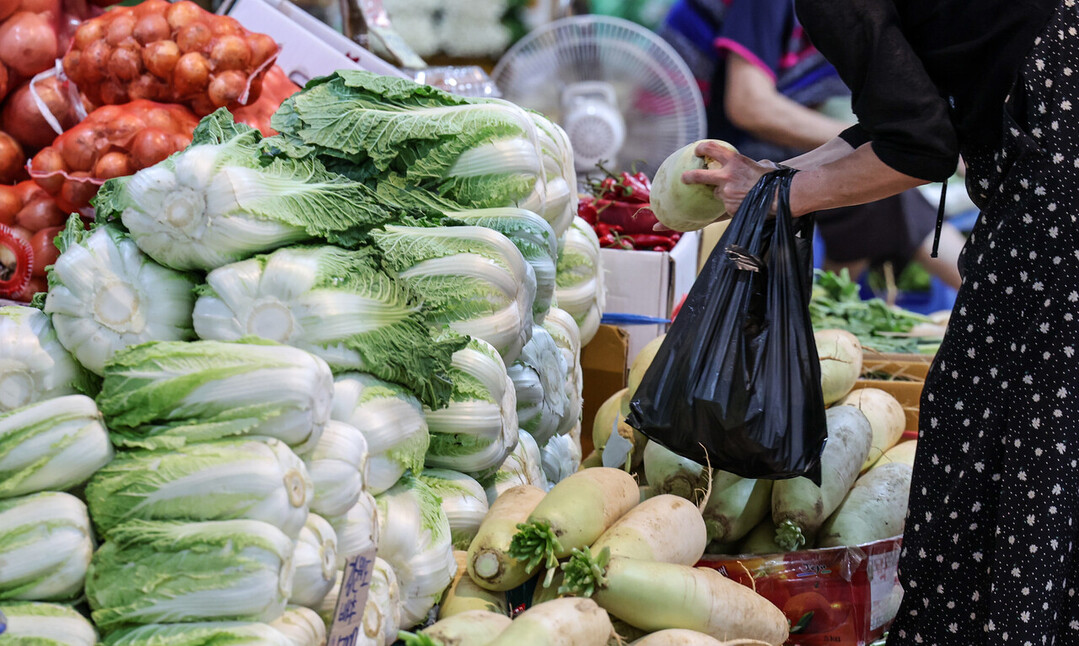
Seoul, South Korea – South Korea's consumer prices continued to climb in November, marking the third consecutive month of inflation below 2%. While falling oil prices helped to temper overall price increases, soaring costs for vegetables like radishes and pumpkins contributed to the upward trend.
According to data released by the Statistics Korea on Wednesday, the consumer price index rose 1.5% year-on-year in November, following increases of 1.6% in September and 1.3% in October.
Vegetable prices, which had already surged 11.5% in September and 15.6% in October, continued their upward trajectory in November, rising 10.4%. The prices of radishes (up 62.5%), pumpkins (up 42.9%), seaweed (up 35%), cucumbers (up 27.6%), and tangerines (up 23.2%) were particularly notable.
"We expect the supply of radishes to improve from January onwards as winter radishes are expected to be harvested in earnest," said an official from the Ministry of Agriculture, Food, and Rural Affairs.
In contrast, oil prices fell 5.3% year-on-year, contributing to a 0.22 percentage point decrease in overall consumer prices. "Although international oil prices have declined, the reduction in fuel taxes was smaller than the previous month, leading to a 2.4% increase in oil prices compared to the previous month," said Gong Mi-suk, an official at Statistics Korea.
Looking ahead, inflation is expected to hover around 2%. Kim Woong, deputy governor of the Bank of Korea, said at a meeting on the price situation that "consumer price inflation is expected to approach 2% in the near term due to base effects and the appreciation of the won." He added that the future path of inflation will be influenced by factors such as exchange rate and oil price trends, domestic demand, and adjustments to public utility rates.
Additional upward pressure on prices is expected from livestock products and agricultural goods. As winter approaches, there is a risk of increased outbreaks of avian influenza and African swine fever, which could negatively impact the supply of livestock products. Moreover, rising prices of food raw materials such as cocoa, coffee, and palm oil, caused by abnormal weather conditions and declining cultivation areas, are pushing up prices of some processed foods. Cold snaps and prolonged winter monsoons, similar to those experienced in February this year, could also disrupt agricultural supply.
Park Soon-yeon, director-general of the distribution and consumption policy division at the Ministry of Agriculture, Food, and Rural Affairs, said, "We will develop and implement measures to stabilize the supply of horticultural products in response to climate change by the end of the year."
[Copyright (c) Global Economic Times. All Rights Reserved.]




























